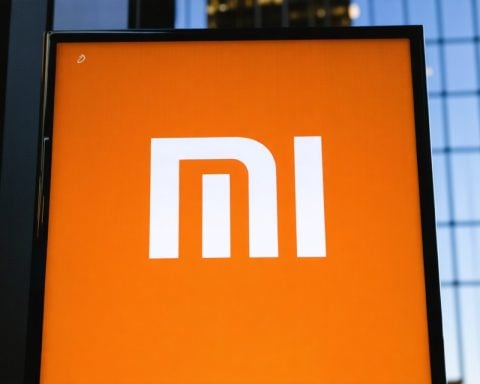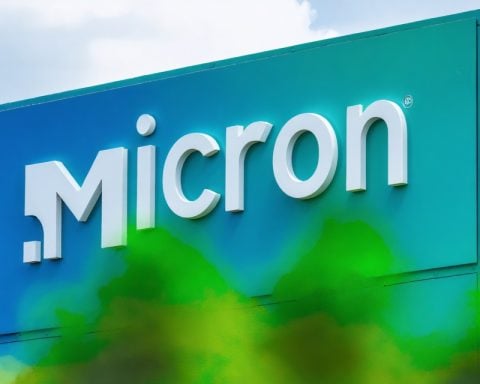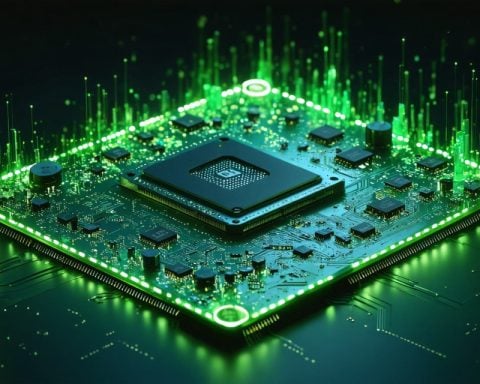The remarkable ascent of Nvidia’s stock in 2024 has captured the attention of investors worldwide. Starting the year at a modest $50 per share, the stock soared to over $145 by late November, experiencing a staggering 195% increase. Such impressive growth from one of the tech world’s giants prompts many to consider whether this trajectory can continue and how to potentially benefit from it.
Key figures from Nvidia’s recent earnings report provide insight into its success. In the third quarter, the company posted revenues of $35.1 billion, a 94% increase from the previous year, along with non-GAAP earnings per share of $0.81, marking a 103% rise. A significant portion, 88%, of Nvidia’s revenue was derived from its data center segment, showcasing the strength of their AI solutions, with this segment having grown 112% year over year. By contrast, their gaming, professional visualization, and automotive revenues grew at a slower pace.
Looking forward, Nvidia anticipates fourth-quarter revenues to reach $37.5 billion, with a consistent non-GAAP gross margin expectation. The launch of their innovative Blackwell GPUs later in the year is particularly noteworthy. These chips promise to significantly outpace the performance of current models, potentially sparking heightened demand in AI hardware.
Despite Nvidia’s momentum, potential investors should be mindful of market volatility and evaluate how Nvidia aligns with their investment goals. The company’s dividend yield remains low, posing a consideration for those focused on income. Understanding and agreeing with Nvidia’s value proposition, particularly in AI, is crucial for those contemplating an investment in this dynamic company as the AI landscape evolves.
Unveiling the Hidden Corners of NVIDIA’s Financial Triumph: What’s Next?
The year 2024 has been an exhilarating ride for Nvidia, with its stock experiencing an eye-popping surge that has intrigued investors globally. However, beneath the surface of this financial triumph lies a trove of unexplored facets that shed light on potential global implications, lingering controversies, and the broader impact on society.
Digging Deeper: The Ripple Effect on Global Markets
Nvidia’s momentum isn’t just a personal success story for investors; it’s a phenomenon with broader economic implications. For global markets, the company’s remarkable rise signifies a strengthening of technology stocks, which bolsters investor confidence across the board. This upswing in tech stocks may prompt increased focus and investments in sectors allied with artificial intelligence, indicating a sweeping transformation in global investment strategies.
Impacts on Jobs and Industries:
The growth of Nvidia reflects a wider trend in the AI sector, which is reshaping industries by increasing automation and efficiency. On one hand, this leads to new job opportunities in AI development, data science, and engineering, with companies rushing to innovate and build AI solutions. On the other hand, sectors reliant on manual labor face uncertainty as automation threatens traditional job roles, particularly in manufacturing and logistics.
Controversies: Unanswered Questions and Ethical Dilemmas
Nvidia’s rapid growth brings with it certain controversies. One pressing concern is data privacy and security. As AI technologies become more powerful, the potential for misuse increases, leading to ethical questions about surveillance and data handling. Moreover, the unequal access to AI technologies might widen socioeconomic gaps between countries and communities, sparking debates about fairness and equality in technological advancement.
Balancing the Pros and Cons
Advantages:
1. Technological Advancements: Nvidia’s innovations, particularly in AI, promise to accelerate technological progress across various fields, including healthcare, automotive, and environmental monitoring.
2. Economic Growth: The company’s expansion bolsters economic growth, driving prosperity through job creation in high-tech sectors while encouraging worldwide investment in AI.
Disadvantages:
1. Market Volatility: The immense rise in stock prices can lead to volatility, posing risks for investors and potentially destabilizing markets during periods of sharp corrections.
2. Ethical Concerns: The rapid deployment of AI technologies raises ethical concerns around privacy, inequality, and the potential for job displacement, necessitating careful consideration and regulation.
Tackling Future Challenges:
With Nvidia at the forefront, one pivotal question remains: How can innovation be directed to ensure it benefits a broader spectrum of society? The answer may lie in policy measures that encourage sustainable development, equitable access to technology, and stringent regulations to safeguard privacy and rights.
As we witness Nvidia’s evolution, it’s crucial for stakeholders—from governments to businesses and individual investors—to engage in dialogues, assess the unfolding landscape critically, and prepare to address the challenges and opportunities presented by the AI revolution. In this dynamic realm, vigilance and adaptability are key as we navigate the intricacies of technological advancement.


















